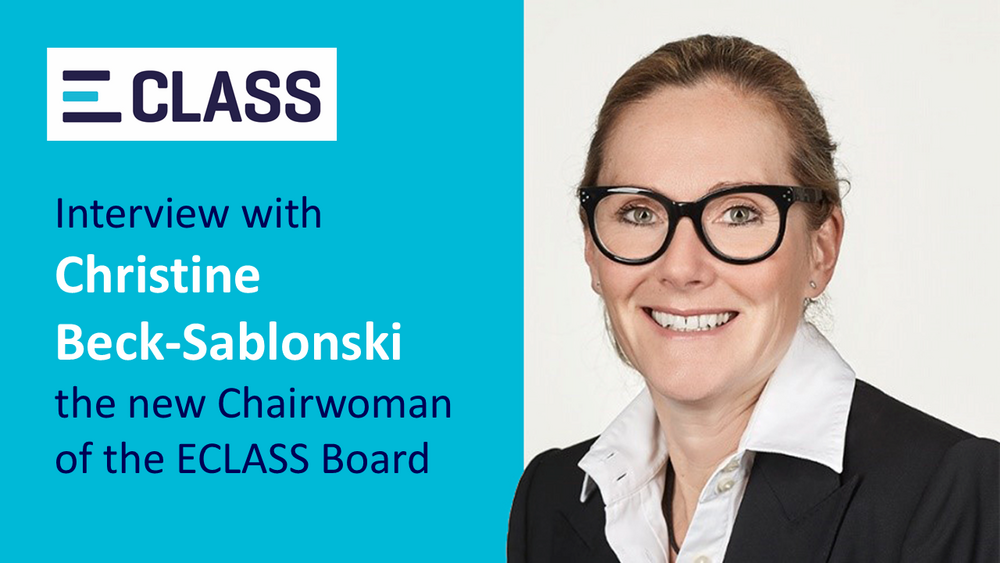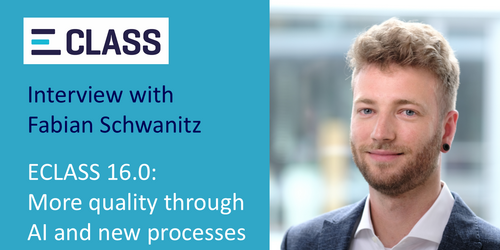Christine, you were elected Chair of ECLASS association by the ECLASS Board members in April 2025. What does this new role mean for you personally – and what goals have you set for your term of office?
This new role is both a great honor and a great responsibility for me. ECLASS is a central building block for the digital transformation of industry. My goal is to further strengthen the relevance and visibility of the standard internationally and to provide new impetus for innovation, sustainability, and cooperation.
What strategic priorities do you want to set in order to further establish ECLASS as the leading standard for product data?
We want to position ECLASS more strongly as an enabler for digital business models. This includes the continuous development of the classification, the promotion of use cases in industry, and the expansion of international partnerships. The stronger involvement of the community is also particularly important to me.
Digitalization is fundamentally changing business models and supply chains. What role does ECLASS play in the digital transformation of industry and commerce—and how do you want to actively shape this change?
ECLASS creates the basis for end-to-end, automated processes – from product development to maintenance. Without standardized data, digitalization is hardly possible. We want to support companies in improving their data quality and efficiently networking digital ecosystems.
How can ECLASS help improve interoperability between digital systems – especially in the context of International Manufacturing-X?
The uniform structure and semantics of ECLASS enable systems from different manufacturers and industries to communicate with each other. This is essential for the networking of global industrial ecosystems, where machines, sensors, and platforms must work together across systems. ECLASS provides the basis for this as a “semantic language.”
Sustainability is a key issue in industry and society. What potential do you see in the use of standardized product data to better achieve environmental and social sustainability goals?
Standardized data enables transparency – for example, regarding material compositions, energy consumption, or recyclability. This is the basis for informed sustainability decisions along the entire value chain. ECLASS makes an important contribution here.
You bring extensive experience from your work at Schneider Electric. How would you like to contribute this expertise to your new role – and what synergies do you see between industry and standardization?
I see myself as a bridge builder between practice and standardization. At Schneider Electric, I experienced how important reliable data standards are for efficiency, innovation, and sustainability. I would like to bring this perspective to my work at ECLASS and intensify the dialogue with industry and associations.

